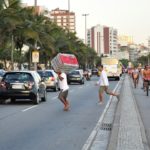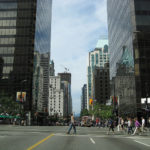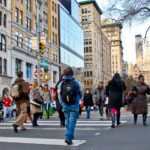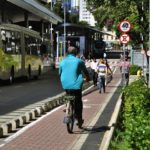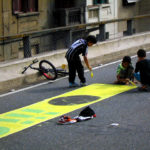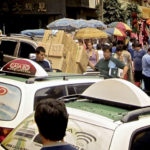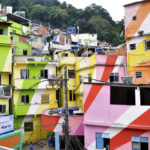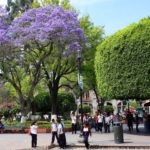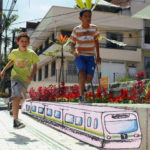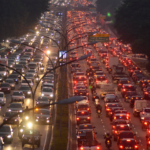Posts tagged with 'Rio de Janeiro'
From 2009 to 2012, the number of traffic deaths on Brazilian streets has increased gradually each year – peaking in 2012, when 44,800 people lost their lives in traffic crashes. However, preliminary data from the National Health System (SUS) indicates ...

Cities worldwide face the pressing challenge of growing motorcycle fleets and remarkable increases in related traffic fatalities. With streets ill-prepared and motor-bikes whizzing in every direction, the scene might best be described as urban transport anarchy. The problem is especially ...

Rio de Janeiro is breathtaking. It just takes a walk along the boardwalk of the Copacabana and Ipanema beaches, for example, to be completely absorbed by the city’s natural beauty and the thousands of people enjoying these sites. There you ...

Last week, cities around the world made bold commitments to confront climate change. The Compact of Mayors, announced at the UN Climate Summit in New York City, convenes cities to set ambitious targets and report their performance transparently. It builds ...

Update: 9/22/2014: The People’s Climate March on Sunday, September 21, 2014 included more than 400,000 participants in New York City alone, making it the largest climate march in history. In total, 160 marches occurred globally with another 2,800 solidarity events in 166 countries. Organizers plan to continue these ...

Conducted by the Brazilian National Association of Transport Operators (NTU), this year’s Seminar on Urban Public Transportation responded to a growing demand among Brazilian citizens for improved public transport. On August 27 and 28, 2014, city planners, experts, transport operators, ...

Traffic congestion has wide ranging costs, from increasing stress and pollution levels to wasting commuters’ time. A new study released by the Industry Federation of the State of Rio de Janeiro (FIRJAN) confirms that traffic congestion has tremendous economic costs ...

World Cup fans may be focused on the games, but critics are paying attention to another aspect of the event—its price tag. Brazil spent billions of dollars on World Cup infrastructure, and many are understandably questioning the long-term benefits these ...

Not in Brazil for the World Cup? No problem! Sure, you can catch the games at your favorite local sports bar, but did you know that you can experience the atmosphere of the city streets, as well? Google Street View ...

For decades, ‘work’ meant spending an eight-hour chunk of your day in an office, industrial facility, or at school. Workers needed to physically occupy a given location in order to do their jobs. Because of this, the trips to and ...

Cycling is already an important part of daily life many of Brazil’s urban residents. To grow the country’s cycling culture as well as provide better conditions for users, the new “Manual of Projects and Programs for Encouraging Cycling in Communities” ...

As much as cities can be drivers of economic and social progress, sometimes it’s downright stressful to live amid the hustle and bustle of today’s urban centers. To escape this stress, many urban residents take refuge in green public spaces, ...

As cities in the developing world continue to grow, so do their traffic safety concerns. Latin America, for instance, now sees three times as many deaths from traffic crashes as Europe, the vast majority of which occur in cities. Vulnerable ...

Worldwide, people are moving less – taking their car, abandoning walking and bicycling, or perhaps unable to visit a neighborhood park or play space because it may not exist. In real numbers, as outlined by the Designed to Move campaign, physical activity ...

In Sao Paulo, increasing car sales led to the worst congestion in the city’s history. Photo by Levi Bianco. In May, car sales in Europe fell to the lowest level in almost two decades. Within the first five months of ...

Page 3 of 5« First...234...Last »








